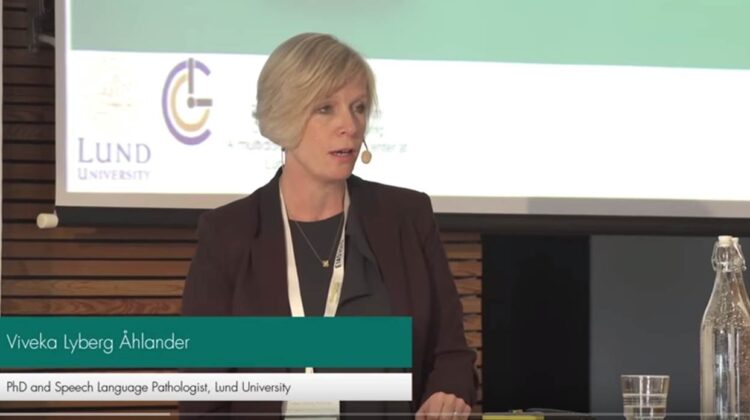
Viveka Lyberg Åhlander a PhD in Medical Sciences/ Logopedics at EIAS2015
Vocal stress is an increasing issue in schools
Viveka Lyberg Åhlander of Lund University is an expert in speech-language pathology and has worked a lot with people with voice problems. During her work, she noticed that quite a few of the people she helped were teachers. This also became the focus of her research which has looked at teachers’ high occupational voice demands. She’s found that 13% of Swedish teachers have ongoing problems compared to less than 2% of the general population. 18% of the teachers also stated that they have considered changing profession due to voice problems.
The vocal load depends on both environmental factors, such as the room acoustics, as well as individual factors like gender and whether the person has had any vocal training. When Viveka and her colleagues asked the teachers if they felt the room acoustics supported their voice, they found that 38% disagreed with this question and the figure rose to 60% amongst those with voice problems.
How does a teacher with a sore throat impact on students?
What does a hoarse voice mean for the students? Does it affect them at all? Well, Viveka’s research found that students listening to a hoarse voice made more mistakes, changed their answers more frequently and the girls specifically, took longer to respond, indicating increased listening effort.
Watch Viveka’s presentation to also find out what judgements the children made of the ‘teacher’ based solely on listening to the hoarse voice.
Watch more films from EIAS2015.

